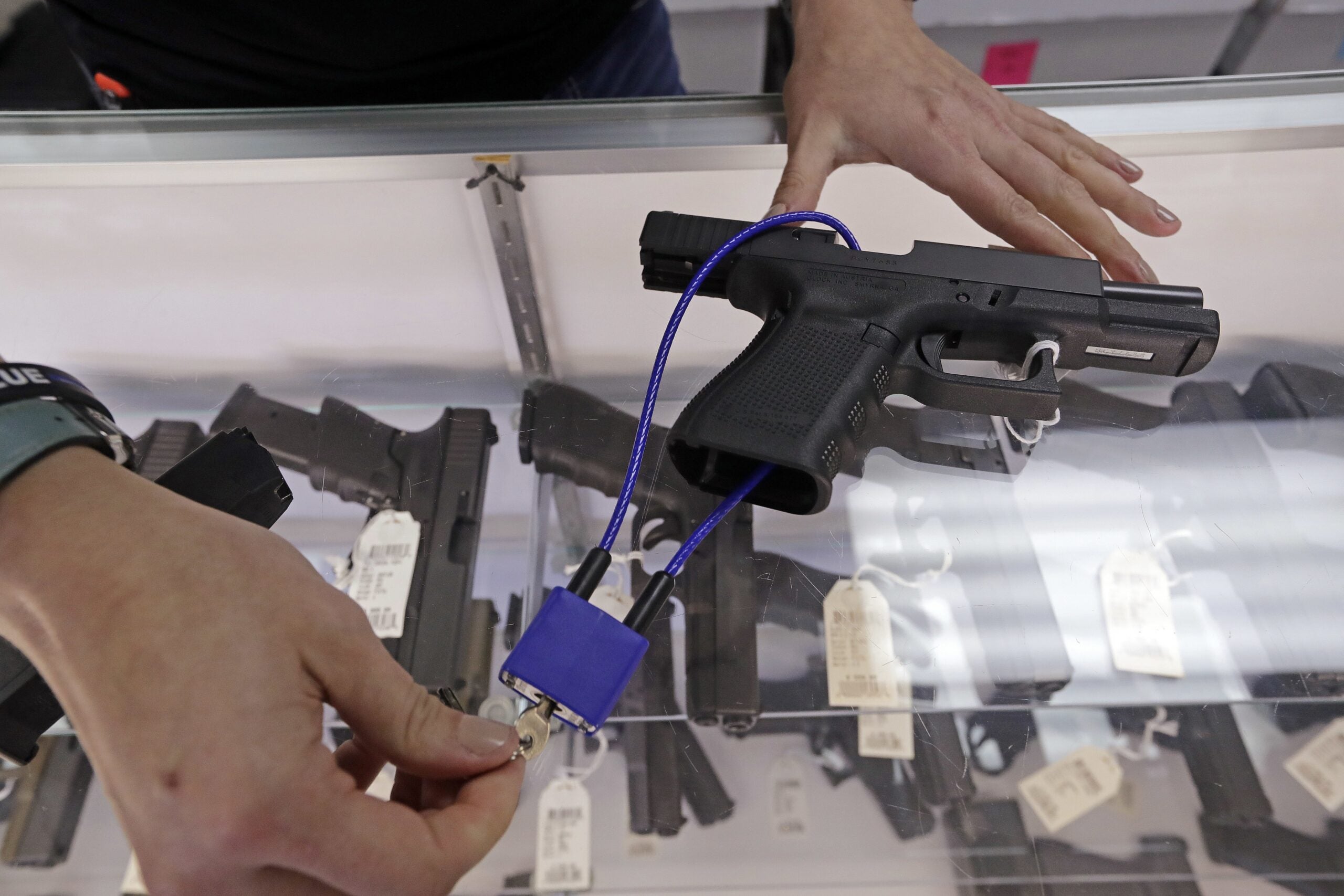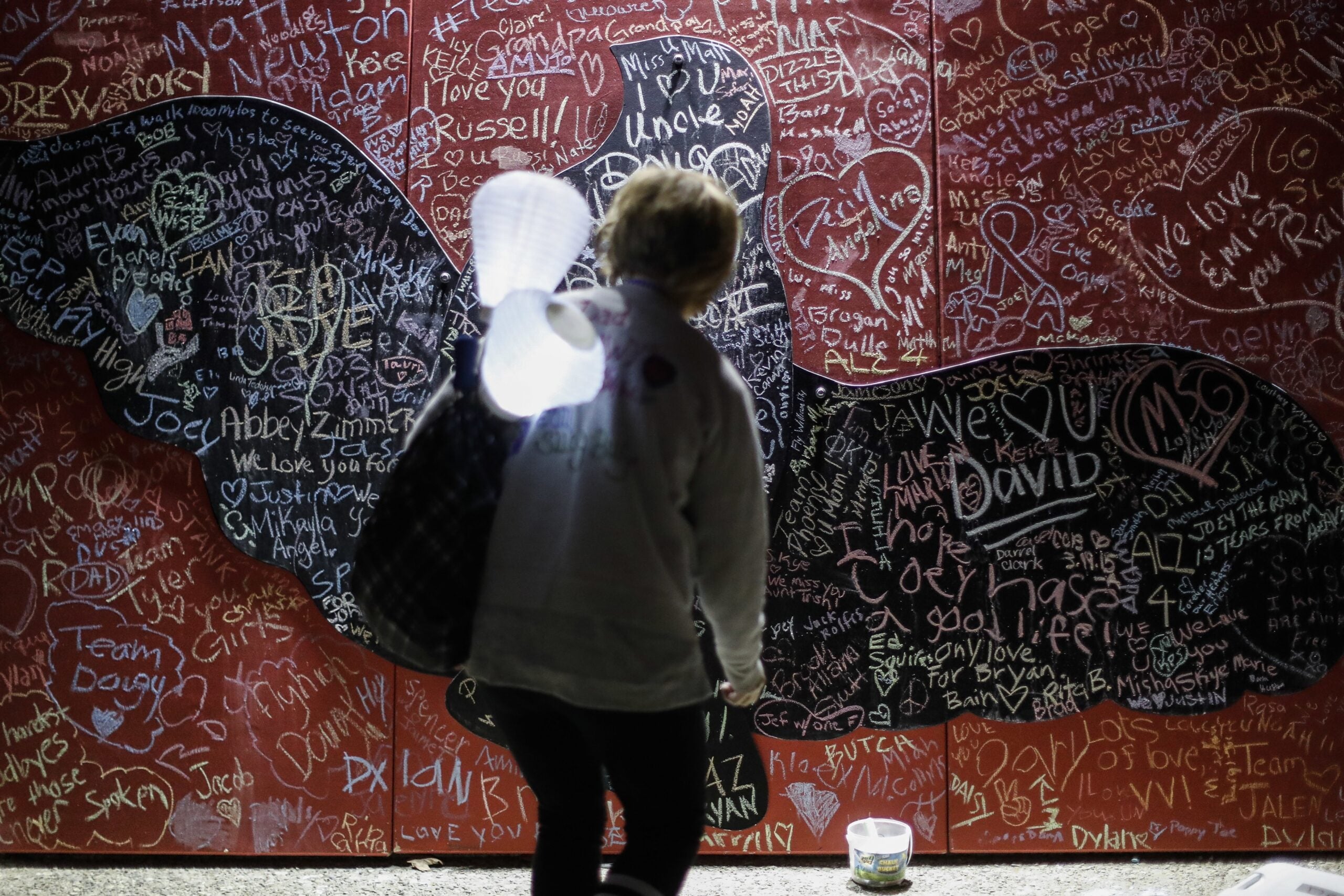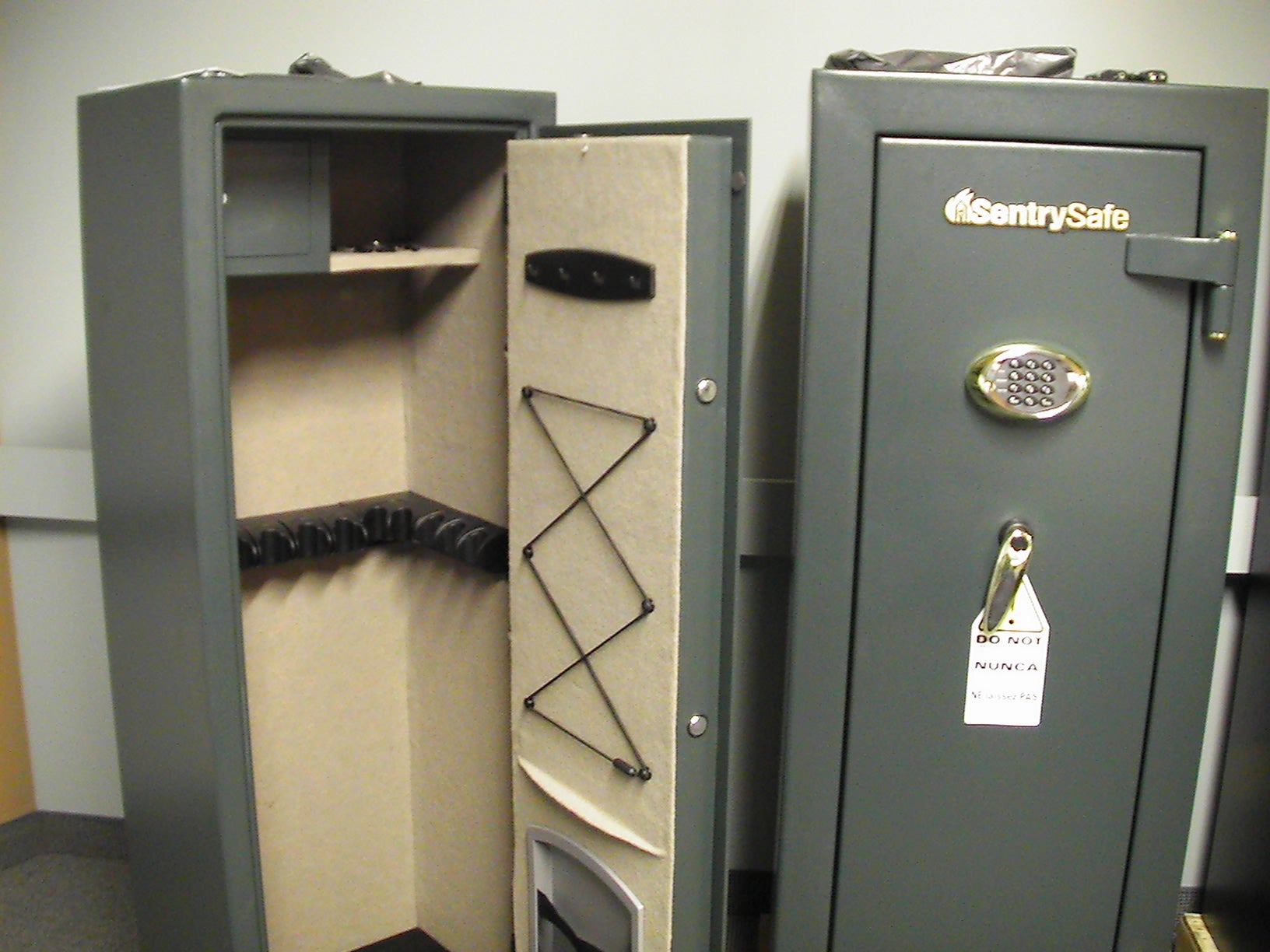Wisconsin’s gun retailers could receive training in suicide prevention and temporarily store firearms for people in crisis under a GOP-sponsored bill in the statehouse.
But details of how lawmakers would achieve that goal have become more complicated in recent weeks.
Under earlier versions of the legislation — which received bipartisan support — the state health department would distribute $75,000 in grant funding to prevent gun suicides.
News with a little more humanity
WPR’s “Wisconsin Today” newsletter keeps you connected to the state you love without feeling overwhelmed. No paywall. No agenda. No corporate filter.
Those dollars would go toward sharing guidelines and training staff on how to avoid selling or renting guns to anyone considering suicide. The funding would also allow gun sellers to provide voluntary, temporary firearm storage for people in crisis.
Rep. Shae Sortwell, R-Two Rivers, called the legislation “the brainchild” of Republican state Sen. Jesse James, who approached him with the hope to reduce the suicide rate in Wisconsin in a way he said would respect individuals’ constitutional rights.
“Really what it is, is trying to get kind of past the stigma and the difficulty of reaching a certain population as it relates to making sure we have…people who are closest to the issue being able to address the issue,” he said.
Sortwell argued it would make it easier for people on the frontlines to receive training to recognize signs of someone considering suicide and money to temporarily store a person’s firearms when voluntarily surrendered.
Research shows the majority of suicide attempts are impulsive. But easy access to guns — the most lethal method — makes it more likely for people to die by suicide.
Sortwell said the bill aims to give people a place to temporarily store firearms “so that while somebody is getting the help they need, while they’re working through their personal problems, they don’t have this temptation in the house,” he said.
The Wisconsin Anti-Violence Effort, or WAVE, registered in favor of the legislation. Nick Matuszewski, policy and strategic partnerships manager of the gun violence prevention group, said the legislation is “a very promising first step.”
He said in an ideal world, there would be more funding. But he said some lawmakers are hesitant to provide any.
“Once we can get some of these programs off the ground and show their efficacy, we can promote it and try to get more money down the line,” Matuszewski said.
Matuszewski called the statistics around death by gun suicide in Wisconsin, especially in rural areas, “jarring,” saying the legislation is important to address the rising suicide rates across the country. He pointed to the increase in gun sales during the pandemic.
In 2021, 905 Wisconsin residents died by suicide, according to the Centers for Disease Control and Prevention. That’s up from 861 residents in 2020. Rural men age 25 and older have the highest rate of suicide in the state.
The state’s suicide rate rose by 32 percent from 2000 to 2020, according to a 2022 report from the state health department. In 2020, firearms were the most commonly used method of suicide, accounting for 51 percent of suicide deaths. That same year, 62 percent of all gun fatalities in Wisconsin were suicide.
He said the funding Democratic Gov. Tony Evers allocated in the budget for other gun violence prevention and suicide prevention policies was stripped.
“All that this bill is trying to do is to claw back and try to get something out there to try to prevent these tragedies from occurring,” he said. “It’s an issue that affects everyone. It affects all districts and affects all Wisconsinites. And we can’t turn a blind eye to it.”
While the stated goals of the legislation are straightforward, the plan itself would take an unusual path to achieve them.
Instead of a single piece of legislation, Sortwell and James have split it into two bills. One would create the grant program, while a second — introduced more recently — would provide the funding. Sortwell said that would prevent Evers from using his partial veto pen to change the program.
Another change introduced by Sortwell and James late last month would also protect gun retailers from lawsuits, something the National Shooting Sports Foundation said was a must during public hearing in May.
It’s not clear whether those proposals, or the underlying bill, have the support of Gov. Tony Evers. A spokesperson for the governor did not respond to a request for comment.
In Wisconsin, firearms are the most commonly used method of suicide, according to a 2020 report from the state health department. The agency found the state’s suicide rate rose by 40 percent from 2000 to 2017.
The majority of suicides between 2013 and 2017 were male, with the highest rates among white or Indigenous peoples, according to state data. LGBTQ people, veterans and people living in rural areas are also most at risk.
Nationally, over half of all suicides involve a firearm, according to a 2022 report from KFF, formerly the Kaiser Family Foundation. Firearm suicide rates rose to a new record high of 26,320 people in 2021, according to the Centers for Disease Control and Prevention.
Four similar bills have been introduced in the past, according to the nonpartisan Legislative Reference Bureau. In 2019, an Assembly Bill passed but stalled in the Senate.
If you or someone you know is considering suicide, call the suicide prevention lifeline at 988 or text “Hopeline” to 741741.
Wisconsin Public Radio, © Copyright 2025, Board of Regents of the University of Wisconsin System and Wisconsin Educational Communications Board.






